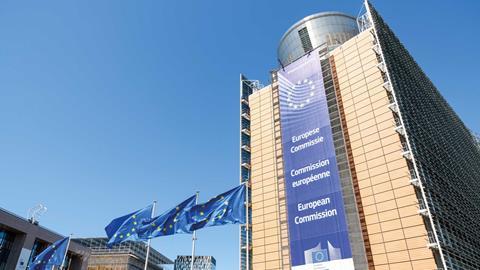Solicitors continue to face a patchwork of arrangements that fail to reflect the importance accorded to legal services in the Trade and Cooperation Agreement
As international business resumes, UK lawyers will have to go to non-EU Switzerland to experience the working arrangements and professional status they once enjoyed across the EU. They can do this without a permit for 90 days a year.
Switzerland, which applied the two EU directives that guarantee lawyers from member states the right to work and practise law, agreed with the UK a service mobility agreement with a citizens’ rights provision. But only until 1 January 2023, when the agreement may be extended.
Elsewhere, a year on from the end of the Brexit transition period, solicitors face a patchwork of arrangements that fail to reflect the importance accorded to legal services in the withdrawal agreement – the Trade and Cooperation Agreement (TCA). That was the message delivered to 600 solicitors attending Tuesday’s online Law Society conference reviewing Brexit’s impact on legal practice.
Of the TCA, Society international policy adviser Michael Padua noted: ‘The language doesn’t work well with how solicitors operate.’
Categories that look promising for lawyers - for example to ‘fly in, fly out’ without permits and visas – are problematic. Provision is made for ‘contractual services providers’ who must have been employed by a business for a year and professionally qualified for three.
A route available to managers to set up a business in an EU member state is restricted to a role in the set-up; and of course is not an option if a law firm already has an office in the country. Another ‘manager’ route is restricted to activities such as taking instructions from a company board.
A route for ‘specialists’ may be subject to a test to show the expertise was not available in-country. Trainees fare better, and provided they have a degree may stay for a year.
There is a route for ‘independent professionals’ to spend a year in an EU country. They must be at least six years’ qualified. But some states treat law firm partners as employees (and therefore not ‘independent’). Others do not. ‘The usefulness of this category is in doubt,’ Padua notes.
Short-term business visitors can spend up to 90 days in every 180 in member states, a total that includes time in any Schengen Area country. Professional advisers may attend meetings, conferences and trade fairs, or engage in business development. But, crucially, and with some exceptions, they cannot charge for their time.
‘There is no standardisation as to how member states deal with their TCA obligations,’ Padua confirmed.
'We have gone from a single rule [for practice rights] for 31 countries to 27 for EU members and four EFTA states'
Marco Cillario, the Law Society
Marco Cillario, another Society international policy adviser, addressed practice rights. ‘We have gone from a single rule for 31 countries to 27 for EU members and four EFTA states,’ he noted.
The TCA sets out a commitment enabling EU and UK lawyers to advise on the law of their own country and on international public law. But member states can schedule ‘reservations’.
Still, it is ‘not all doom and gloom’, said Cillario. The Society identified nine key jurisdictions as a priority target for solicitors to practise under their home title. This has been established in seven: Germany, France, Belgium, Italy, Spain, Netherlands and Ireland. Greece and Luxembourg remain more restrictive.
Belgium allows solicitors to advise on EU law, but other jurisdictions do not. And UK lawyers will not benefit from EU professional privilege.
The recognition and enforcement of judgments remains a bugbear for lawyers advising in civil, commercial and family matters. The TCA included nothing on this topic.
‘We had hoped for further declarations [on this],’ said Helena Raulus, head of the Society’s Brussels office. ‘Nothing has happened.’
Cases that began before 31 December 2020 are subject to the old rules on recognition and jurisdiction.
For cases begun after 1 January 2021, national laws apply when determining grounds for jurisdiction, recognition and enforcement. Very few historical bilateral agreements can be relied upon, as in most jurisdictions they no longer exist in law. In family law, at least, various Hague Conventions do cover areas such as child abduction and maintenance.
After the European Commission rebuffed a UK application to join the Lugano Convention, which covers jurisdiction and enforcement between the EU and EFTA countries, that route is at least temporarily blocked. Lugano, the commission argued, is a single-market mechanism, and the UK decided against remaining in the single market.
The commission argues that the Hague 2019 Convention will be a more suitable mechanism to govern E U/UK arrangements. But Hague 19 is not yet in force. It also has just five signatories to date: Costa Rica, Israel, Russia, Ukraine and Uruguay. Recognition within the EU of processes and outcomes in signatory states would not be automatic anyway.
On jurisdiction, recognition and enforcement, Raulus predicts little further progress until ‘perhaps 2024’.





































No comments yet